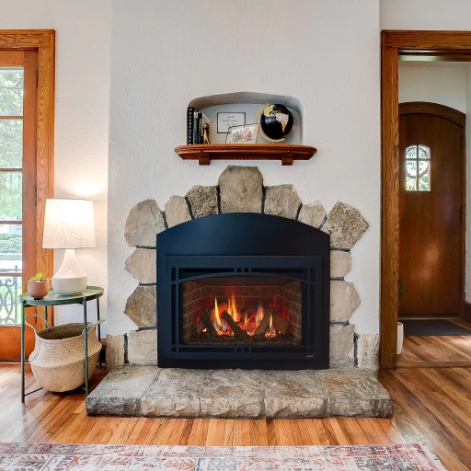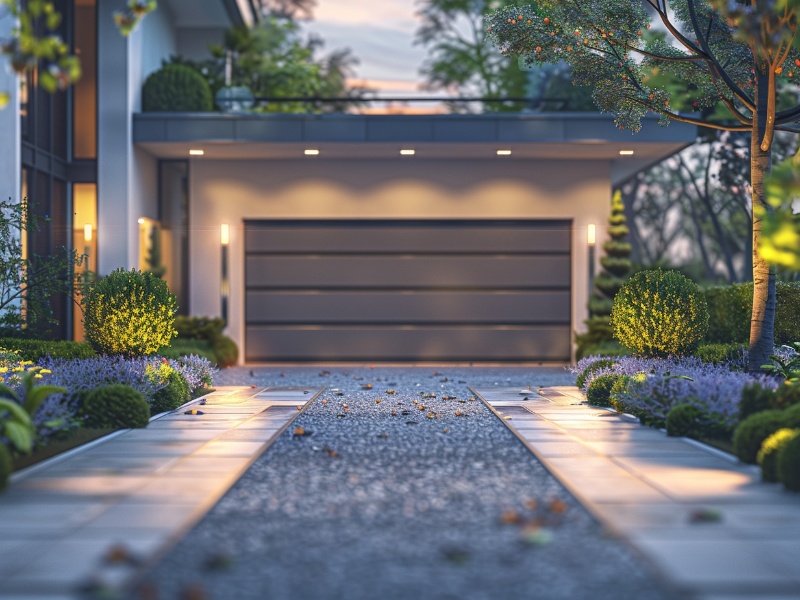Table of Contents
- 1 What Are Raynor Garage Doors?
- 2 What Makes Raynor Garage Doors Stand Out?
- 3 What Are the Benefits of Choosing Raynor Garage Doors?
- 4 What Are the Different Types of Raynor Garage Doors?
- 5 Are There Any Drawbacks to Choosing Raynor Garage Doors?
- 6 How Do Raynor Garage Doors Compare to Other Brands?
- 7 Frequently Asked Questions
Are Raynor Garage Doors good? If you’re in the market for a new garage door, you’ve likely come across the name Raynor. But what sets Raynor Garage Doors apart from the competition?
In this article, we’ll explore the benefits of choosing Raynor Garage Doors, including their durability, energy efficiency, security features, noise reduction capabilities, and customization options. We’ll also take a look at the different types of Raynor Garage Doors available, such as steel, wood, aluminum, and fiberglass doors.
This article will discuss any potential drawbacks of choosing Raynor Garage Doors, such as higher cost and limited availability. We’ll compare Raynor Garage Doors to other popular brands like Clopay, Amarr, and Wayne Dalton to help you make an informed decision.
In addition, discover why Dreifuss Fireplaces (& Doors) choose to install and maintain Raynor Garage Doors.
Stay tuned to find out if Raynor Garage Doors are the right choice for your home!
What Are Raynor Garage Doors?
Raynor Garage Doors, a leading name in the industry, have a history defined by a commitment to quality and performance.
This commitment to excellence can be traced back to the founding of the company in 1944, when William Raynor established the business with a vision to provide durable and reliable garage door solutions.
Over the years, Raynor Garage Doors has grown and evolved, staying true to its core values of innovation and customer satisfaction. The company’s early focus on traditional craftsmanship has transformed into a modern approach that combines cutting-edge technology with time-tested quality standards. Today, Raynor Garage Doors is known for its wide range of residential and commercial garage door products, catering to the diverse needs of customers across the country.
What Makes Raynor Garage Doors Stand Out?
Raynor Garage Doors stand out in the market due to their surprising blend of innovation, quality, and a sterling industry reputation.
Their exceptional track record of industry leadership is underscored by multiple awards and accolades recognizing their commitment to excellence.
Experts in the field often refer to Raynor as a pioneer in garage door technology, setting the standard for modern design and functionality.
Their expert opinions are highly sought after, shaping trends and influencing the direction of the industry. Customers and competitors alike look to Raynor for guidance on best practices and cutting-edge innovations in the garage door sector.
What Are the Benefits of Choosing Raynor Garage Doors?
Opting for Raynor Garage Doors ensures a seamless blend of quality craftsmanship, exceptional performance, and high customer satisfaction backed by rave reviews and solid warranty coverage.
Durability
Raynor Garage Doors are renowned for their exceptional durability, designed to withstand the test of time with minimal maintenance requirements and backed by comprehensive warranty terms.
The longevity of Raynor Garage Doors can be attributed to the high-quality materials used in their construction. These materials, such as steel, aluminum, or wood composite, are selected for their strength and resistance to various weather conditions. This ensures that the doors remain in optimal condition for years to come.
To prolong the lifespan of Raynor Garage Doors, regular maintenance is key. Simple tasks like lubricating moving parts, checking for loose hardware, and cleaning the door surface can significantly extend the door’s longevity.
Raynor offers a detailed warranty coverage that provides peace of mind to customers. This encompasses different aspects of the door’s construction and operation to ensure lasting quality.
Energy Efficiency
Raynor Garage Doors prioritize energy efficiency, offering sustainable solutions that reduce environmental impact while optimizing performance and operational efficiency.
Their dedication to sustainability initiatives is channeled through innovative designs that integrate advanced technology for maximum energy conservation.
Raynor’s efficient garage door solutions not only enhance the aesthetics of homes but also contribute to a greener planet by minimizing carbon footprint and promoting eco-friendly practices.
By combining cutting-edge engineering with a focus on environmental stewardship, Raynor sets a high standard in the industry for designing garage doors that prioritize both functionality and sustainability.
Security
Raynor Garage Doors place a premium on security, incorporating advanced safety features and reliable mechanisms to safeguard your property and loved ones.
Their integrated security technologies, such as rolling code technology and encryption protocols, add an extra layer of protection against unauthorized access.
The installation process includes reinforced hardware and manual release mechanisms for emergency situations, ensuring that your garage remains secure at all times.
Raynor Garage Doors undergo rigorous testing to meet industry standards for strength and resilience, providing peace of mind for homeowners seeking top-notch security for their properties.
Noise Reduction
Raynor Garage Doors excel in noise reduction, ensuring quiet operation and enhanced comfort for your home environment with simple maintenance practices to upkeep this feature.
The noise reduction capabilities of Raynor Garage Doors are a key feature that sets them apart from other garage door options.
By significantly reducing operational noise levels, Raynor doors provide a peaceful environment in your home where the clanging and clattering of a typical garage door are minimized.
To maintain the noise reduction benefits, it is important to follow a few maintenance tips.
Regular lubrication of moving parts, such as hinges and rollers, can help keep the door operating smoothly and quietly.
This not only preserves the door’s performance metrics but also prolongs its lifespan, ensuring continued peace and comfort in your living space.
Customization Options
Raynor Garage Doors offer extensive customization options, allowing you to tailor the design to your preferences and style, ensuring a stylish and personalized look for your property.
With a focus on design flexibility, Raynor’s features cater to a wide range of tastes, from traditional to modern aesthetics.
The ability to select from various panel designs, hardware finishes, and window options ensures that each door is unique. By offering customization at this level, Raynor empowers homeowners to create a door that complements the overall architecture of their home while also reflecting their personal taste.
This attention to detail and individuality sets Raynor apart in the realm of garage door customization.
What Are the Different Types of Raynor Garage Doors?
Raynor Garage Doors offer a diverse range of options including steel, wood, fiberglass, and aluminum doors, each designed to meet specific aesthetic and functional needs.
Steel doors are known for their durability and low maintenance, making them a popular choice for homeowners seeking a long-lasting solution.
Wood doors provide a classic and timeless appeal, often customizable with various stains and finishes to match different home styles.
Fiberglass doors offer a combination of strength and lightweight design, ideal for those looking for energy efficiency features.
Aluminum doors are prized for their sleek, modern look and rust-resistant properties, perfect for contemporary homes.
Steel Doors
Raynor’s steel doors offer a perfect combination of strength, security, and durability, making them a popular choice among homeowners despite some specific drawbacks.
One of the key advantages of Raynor’s steel doors lies in their material composition. The use of sturdy steel provides enhanced security, as these doors are highly resistant to forced entry. Their durability ensures longevity, requiring minimal maintenance over time. Homeowners appreciate the peace of mind that comes with knowing their property is well-protected by a reliable and robust door.
While steel doors may lack the aesthetic appeal of other materials, their market value and performance in terms of reliability make them a practical and cost-effective choice for enhancing home security.
Wood Doors
Raynor’s wood doors are a testament to exquisite craftsmanship and timeless appeal, offering a traditional aesthetic that requires specific maintenance to retain their beauty.
Crafted by skilled artisans with expertise in woodworking, these doors showcase intricate details and rich textures that add character to any space.
Regular care such as periodic polishing and refinishing is necessary to preserve the wood’s natural allure and protect it from wear and tear.
By investing time and effort in proper maintenance, homeowners can ensure that these doors maintain their pristine condition and continue to exude a sense of warmth and elegance throughout the years.
Aluminum Doors
Raynor’s aluminum doors are characterized by their lightweight construction, corrosion-resistant properties, and efficient performance, making them a practical choice for many homeowners.
The lightweight nature of these doors not only makes them easy to operate but also aids in reducing strain on the door mechanisms over time.
Their corrosion resistance ensures durability, particularly in harsh weather conditions, resulting in minimal maintenance requirements and long-term cost savings for consumers.
The efficiency of aluminum doors extends to their energy-saving properties, contributing to sustainability efforts by helping homeowners reduce their carbon footprint and energy consumption.
Fiberglass Doors
Raynor’s fiberglass doors represent a modern and innovative option in garage door solutions, offering exceptional efficiency and durability to meet the demands of contemporary living.
These doors are designed with sleek lines and refined finishes that add a touch of style to any home.
The innovative features of fiberglass doors, such as advanced insulation technology and smart home compatibility, make them a practical choice for homeowners seeking both functionality and convenience.
With a focus on innovation and technology, these doors are not only aesthetically pleasing but also provide enhanced security and energy efficiency, aligning perfectly with the needs of today’s modern lifestyles.
Are There Any Drawbacks to Choosing Raynor Garage Doors?
While Raynor Garage Doors offer exceptional quality, a potential drawback could be their limited availability in certain regions, impacting accessibility for interested homeowners.
This limitation in local availability may pose a challenge for consumers who prefer to physically see and test a product before making a purchase.
Without the convenience of nearby showrooms or dealers, customers may feel hesitant in committing to Raynor Garage Doors without first-hand experience.
The competitive advantage of other brands with wider distribution networks could sway potential buyers away from Raynor, especially if they prioritize convenience and immediate access to products.
Higher Cost
One of the drawbacks of choosing Raynor Garage Doors could be the higher initial cost, although this is often justified by the value for money and long-term benefits they provide.
When considering the pricing of Raynor Garage Doors, it’s important to view it as an investment rather than a mere purchase. The cost-effective nature of these doors becomes evident over time due to their durability and energy efficiency, which can lead to savings in the long run.
The high-quality materials and craftsmanship used in Raynor doors ensure that they require minimal maintenance, reducing additional costs over their lifespan. In this sense, choosing Raynor Garage Doors represents a smart financial decision, providing immediate security and lasting value.
Limited Availability
Limited availability may pose a challenge for some consumers interested in Raynor Garage Doors. This could be a concern depending on the region, as accessing local service centers and authorized dealers may not be as easy.
This challenge can have a significant impact on the installation process. Customers may face delays or higher costs due to limited options for service providers.
Local service centers and authorized dealers play a crucial role in ensuring a smooth and efficient experience for consumers looking to install Raynor Garage Doors. By having easy access to these facilities, customers can benefit from expert advice, convenient maintenance services, and reliable support throughout the installation and post-installation phases. This ultimately enhances their overall satisfaction and experience with the product.
How Do Raynor Garage Doors Compare to Other Brands?
When compared to other brands like Clopay, Amarr, and Wayne Dalton, Raynor Garage Doors excel in terms of innovation, reliability, and overall consumer satisfaction.
Raynor Garage Doors stands out for its continual commitment to innovation, introducing cutting-edge technologies and designs that meet the evolving needs of consumers.
Its products are not just doors; they are reliable security solutions. Raynor’s emphasis on reliability ensures that their doors not only look good but also function seamlessly, providing peace of mind to homeowners.
In terms of customer satisfaction, Raynor consistently receives praise for their excellent service and support, showcasing their dedication to meeting and exceeding customer expectations.
Clopay Garage Doors
When pitted against Clopay Garage Doors, Raynor stands out for setting high industry standards. Additionally, Raynor offers innovative solutions that cater to diverse consumer needs.
Raynor’s commitment to industry standards is evident in the superior quality of their products. This has garnered significant consumer loyalty over the years.
In comparison, while Clopay upholds industry standards, Raynor’s attention to detail and penchant for innovation give them a competitive edge.
Raynor equips its doors with advanced features such as smart technology integration and energy efficiency. Consequently, this appeals to modern homeowners who seek convenience and sustainability in their garage door solutions.
Amarr Garage Doors
In a comparison with Amarr Garage Doors, Raynor showcases superior performance metrics. Additionally, Raynor has enhanced longevity, and a robust referral program that highlights customer satisfaction and loyalty.
Raynor demonstrates exceptional performance metrics through its high durability and reliable functionality over extended periods. Customers often praise Raynor for its products’ longevity, with many reporting minimal maintenance requirements even after years of use.
Raynor’s community reputation speaks volumes, with numerous satisfied customers referring friends and family members through their enticing referral program. Quality products and top-notch customer service has solidified Raynor as a trusted name in the garage door industry.
Wayne Dalton Garage Doors
When examining Wayne Dalton Garage Doors alongside Raynor, the latter shines with a diverse range of features. Additionally, Raynor offers innovative designs, and exceptional customer care services.
Raynor Garage Doors pay close attention to design elements in their work. They offer customizable options to suit various architectural styles.
Raynor also prioritizes customer support, providing quick response times and thorough warranty validation procedures.
On the other hand, Wayne Dalton Garage Doors stand out for their cutting-edge technology. Their iDrive garage door openers offer convenience and enhanced security features.
Wayne Dalton also puts a strong emphasis on personalized customer care initiatives. They meet each client’s specific needs with professionalism and efficiency.
Frequently Asked Questions
1. What sets Raynor Garage Doors apart from the competition?
Raynor Garage Doors stand out due to their innovation, quality, and industry reputation. They offer durable, energy-efficient, secure, and customizable options to cater to various homeowner needs.
2. What are the main benefits of choosing Raynor Garage Doors?
Choosing Raynor offers durability, energy efficiency, enhanced security, noise reduction, and extensive customization options. They design their doors for long-term performance with minimal maintenance.
3. How do Raynor Garage Doors ensure energy efficiency?
Raynor prioritizes energy efficiency through innovative designs that integrate advanced technology for maximum conservation. They contribute to a greener planet by minimizing the carbon footprint and promoting eco-friendly practices.
4. What types of materials are available for Raynor Garage Doors?
Raynor offers doors made from steel, wood, fiberglass, and aluminum. Each material caters to different aesthetic and functional needs, from the durability of steel to the modern appeal of aluminum.
5. Are there any drawbacks to choosing Raynor Garage Doors?
Potential drawbacks include higher costs compared to some other brands and limited availability in certain regions. Consequently, this may affect accessibility for some homeowners.
6. How does Raynor compare to other brands like Clopay, Amarr, and Wayne Dalton?
Raynor excels in innovation, reliability, and customer satisfaction compared to brands like Clopay, Amarr, and Wayne Dalton. They offer a blend of advanced features, design flexibility, and exceptional service that sets them apart in the market.
Latest Articles

What Is An NG (Natural Gas) Indicator And Why You Need It For Your Fireplace
Table of Contents1 Understanding Natural Gas Fireplaces2 What is an NG Indicator?3 Importance of NG Indicators for Safety4 Types of NG Indicators5 Installation and Maintenance of NG Indicators6 Signs of a Faulty NG Indicator7 Frequently Asked Questions Natural gas fireplaces are a favored option among numerous homeowners due to their convenience and effectiveness. But, what is an NG (Natural Gas) indicator and why you need it for your fireplace? It is imperative to comprehend how they function and the significance of having an NG (Natural Gas) indicator for safety purposes. This article delves into the definition and significance of NG indicators. We will discuss the potential hazards associated with the absence of one and the various types of indicators accessible. Also, we will discuss installation and maintenance recommendations, and methods to recognize and rectify issues with malfunctioning indicators. Stay well-informed and ensure the safety of your home by referring to this exhaustive guide. Understanding Natural Gas Fireplaces Natural gas fireplaces serve as an efficient and convenient heating option for numerous households. They utilize natural gas as a fuel source to deliver consistent warmth and ambiance. How They Work and Why They Need NG Indicators The operation of natural gas fireplaces involves igniting natural gas to generate heat. This process requires diligent monitoring to ensure both safety and efficiency, a task facilitated by the use of NG indicators. NG indicators play a critical role in detecting potential gas leaks. They enable residents to promptly address and mitigate any associated hazards. Through continuous monitoring of gas levels and providing timely warnings and alerts, NG indicators uphold a secure indoor environment. It is imperative to ensure that these indicators function properly to facilitate the effective operation of natural gas fireplaces. This helps mitigate the inherent risks linked to gas leaks. What is an NG Indicator? An NG indicator is a specialized device equipped with advanced sensors and technology. It is specifically designed to detect natural gas leaks and monitor gas pressure in appliances, such as fireplaces. Definition and Purpose The NG indicator functions as a detector that monitors gas appliances for potential leaks. It provides essential functionality to ensure safety in households utilizing natural gas. These detectors play a crucial role in protecting residences by notifying occupants of dangerous gas leaks long before they escalate into perilous situations. Through continuous monitoring of gas levels in the vicinity, NG indicators offer an additional layer of protection. This is particularly important in properties that rely on gas-operated fireplaces or stoves. These devices not only help avert potential disasters but also enhance the overall peace of mind of homeowners. They assure them that their living spaces are equipped with reliable safety features. Importance of NG Indicators for Safety Natural gas indicators are essential for maintaining safety in households equipped with natural gas appliances. These devices serve as a proactive measure to promptly detect gas leaks. This offers homeowners a sense of security and assurance. Potential Dangers of Not Having an NG Indicator The absence of an NG indicator in residences equipped with natural gas appliances can pose significant hazards. This includes the risk of undetected gas leaks , carbon monoxide poisoning , and pilot outages that may lead to dangerous situations. These potential risks can profoundly impact indoor air quality. They directly influence the health and safety of individuals residing in the household. Undetected gas leaks can go unnoticed, gradually permeating the air and creating a potentially explosive environment. Insufficient ventilation from undetected exposure to carbon monoxide can lead to serious health complications. These range from mild symptoms such as dizziness to fatal poisoning. Without proper monitoring from an NG indicator, families are left susceptible to these concealed threats. This underscores the critical importance of implementing proactive measures to mitigate such risks. Types of NG Indicators Indicators for Natural Gas (NG) are available in diverse types. Each presents distinct detection capabilities tailored to specific requirements, encompassing both manual and automated alternatives. Manual vs. Automatic Indicators Manual NG indicators require user intervention for monitoring gas levels and identifying leaks. On the other hand, automatic indicators employ sophisticated technology to deliver continuous, real-time monitoring. This heightened efficiency and oversight enhance safety protocols. Conventional manual indicators rely on individuals to physically inspect and evaluate gas levels periodically. This renders them more susceptible to human errors. Conversely, automatic indicators feature sensors capable of promptly detecting even the most minute fluctuations in gas levels. This establishes a more dependable and precise monitoring mechanism. Automatic indicators can activate alerts and shut-off systems upon detecting a leak. This ensures immediate action to avert potential hazards. This advanced technology enhances safety protocols and instills a sense of command and assurance among users. Installation and Maintenance of NG Indicators The reliable and accurate performance of NG indicators necessitates proper installation and consistent maintenance. This often entails professional installation and adherence to recommended service guidelines. Proper Installation and Regular Maintenance Tips The proper installation of NG indicators involves adhering to the specifications in the user manual. Maintenance protocols entail strict adherence to a predetermined maintenance schedule to ensure sustained operational efficiency. During the installation phase, it is imperative to verify that the NG indicators are securely affixed in the designated location as stipulated by the manufacturer. Crucial steps include confirming power source compatibility and ensuring proper grounding of the device to optimize performance. Calibration of the indicator must be executed meticulously to ensure precise readings. Regarding maintenance, essential practices include regular inspection for signs of wear, thorough cleaning of the indicator components, and routine functionality tests. By allocating time to a consistent maintenance regimen, the NG indicator can operate with optimal efficiency over an extended duration. Signs of a Faulty NG Indicator Recognizing indicators of a malfunctioning NG indicator is essential for upholding safety and performance standards. Inaccuracies and detection issues can undermine the efficacy of these devices. Identifying and Addressing Issues The process of identifying and addressing issues related to NG (natural gas) indicators requires a systematic troubleshooting approach. This ensures their optimal performance

What You Need To Know About Gas Log Set Safety And Installation Considerations
Table of Contents1 Understanding Gas Log Sets2 Safety Considerations for Gas Log Sets3 Installation Guidelines for Gas Log Sets4 Maintaining and Troubleshooting Gas Log Sets5 Frequently Asked Questions Gas log sets are a favored option among homeowners seeking to enjoy the comfort and atmosphere of a conventional fireplace without the inconvenience of wood. This article tells you what you need to know about gas log set safety and installation considerations. Before incorporating one into your residence, it is imperative to understand the safety considerations associated with their use. This discussion delves into the potential hazards linked with gas log sets. It presents crucial precautions to uphold the safety of your home. Also, it outlines proper installation procedures and offers insight into common errors to avoid. Finally, it provides advice on maintenance and troubleshooting. Gain comprehensive knowledge on gas log set safety and installation considerations. Understanding Gas Log Sets Comprehending gas log sets is essential for individuals seeking to elevate their fireplace experience, and for gas lag set safety and installation. These heating appliances can operate on either natural gas or propane. In addition, they are available in a range of styles, including vented, ventless, and vent-free options. They provide an array of benefits and customization opportunities through various fireplace accessories. What are Gas Log Sets? Gas log sets are meticulously crafted artificial logs. They are designed to imitate the appearance and functionality of authentic wood logs within fireplaces. These gas log sets typically consist of ceramic or refractory concrete logs that have been skillfully molded and painted. This allows them to replicate the natural grain and texture of real wood. The logs are arranged in various configurations within the fireplace. They establish a realistic and welcoming ambiance. In addition to the logs, gas log sets often include fireplace accessories such as glowing embers. Accessories also include decorative stones, and even pine cones to enhance the overall aesthetic appeal. Homeowners can select from an array of placement options. These include traditional wood stack, cascading driftwood, or a contemporary geometric arrangement. Homeowners can align their preferred style and design preferences. Safety Considerations for Gas Log Sets Safety considerations for gas log sets are of utmost importance to guarantee a secure and pleasant fireplace experience. It is essential to address potential hazards such as carbon monoxide exposure, gas leaks, and fire safety to maintain a safe environment for homeowners. Potential Hazards and Precautions Gas log sets come with potential hazards that must be taken seriously, including the risks of gas leaks, carbon monoxide poisoning, and fire incidents. It is imperative to establish and adhere to rigorous safety measures to ensure the well-being of individuals and properties involved in the use of gas log sets. Gas leaks represent a significant hazard when utilizing gas log sets. They can result in the accumulation of combustible gas within the premises, heightening the possibility of explosions or fires. Carbon monoxide, an insidious gas generated during incomplete combustion, poses a grave threat due to its colorless and odorless nature, making it undetectable without proper monitoring. To address these risks effectively, it is vital to install carbon monoxide detectors and gas leak sensors in the vicinity of the gas logs. Routine maintenance checks on the gas log system, including cleaning and inspection procedures, are critical to ensure safe operations and the prompt identification of potential issues. In case of a gas leak or suspected presence of carbon monoxide, immediate evacuation of the affected area is paramount, followed by prompt contact with emergency services. Recognizing the distinct odor of rotten eggs associated with natural gas can serve as an early warning sign, prompting swift actions to avert any potential accidents. Installation Guidelines for Gas Log Sets The installation of a gas log set necessitates meticulous planning and strict adherence to specific guidelines. This includes verifying a secure gas connection, ensuring proper gas lines are in place, and complying with local building codes. Often, the complexity of these requirements may require the expertise of a certified technician. Proper Installation Techniques The appropriate installation procedures for gas log sets involve the secure connection of gas lines, meticulous adherence to installation manuals, and strict compliance with local building codes. It is imperative to prioritize the guarantee of secure gas connections to avert leaks and potential safety hazards. During the installation of gas log sets, utilizing suitable sealants and fittings is essential to establish a tightly sealed connection. The correct installation of gas lines is critical for both the safety and operational efficacy of the gas log set. Reference to the installation manual is highly advisable for detailed, step-by-step guidance to prevent inaccuracies and ensure the successful establishment of the gas log set. Consistently adhering to building codes and regulations upholds safety standards. Seeking guidance and confirmation from a certified technician before and after installation can offer invaluable support and assurance throughout the process. Common Installation Mistakes to Avoid It is imperative to avoid common installation errors to ensure the secure and effective operation of gas log sets. This includes verifying proper gas connections and compliance with building codes. Improper gas connections can result in leaks and potential hazards, underscoring the importance of verifying the tightness and correct alignment of all fittings. Failure to adhere to building codes can lead to structural complications, penalties for non-compliance, or even safety concerns. To prevent these oversights, it is advised to consult the manufacturer’s installation guidelines and strictly adhere to local regulations. Engaging a certified technician for the installation of gas log sets guarantees that the procedure is carried out accurately and securely. This provides assurance that the system is functioning as intended. Maintaining and Troubleshooting Gas Log Sets Regular maintenance and troubleshooting of gas log sets are imperative to uphold their optimal performance and safety. This includes thorough examination of the pilot light, pilot assembly, and other gas appliances to preserve heating efficiency and promptly resolve any arising issues. Tips for Maintenance and Repair Ensuring the proper maintenance of your gas log set necessitates conducting

Key Considerations For Using Compressed Liquid Propane In Fireplace Installation
Table of Contents1 What is Compressed Liquid Propane?2 Benefits of Using Compressed Liquid Propane in Fireplaces3 Safety Precautions for Installing Compressed Liquid Propane Fireplaces4 Installation Process for Compressed Liquid Propane Fireplaces5 Maintenance and Care for Compressed Liquid Propane Fireplaces6 Alternative Fuel Options for Fireplaces7 Frequently Asked Questions If you are contemplating the use of compressed liquid propane in your fireplace installation, this discussion will delve into the advantages of adopting this alternative fuel option. These benefits include enhanced efficiency, cost savings, and important safety precautions to consider. Furthermore, a detailed step-by-step guide on the installation process will be provided, along with recommendations for maintenance and care. A comparison of various fuel options for fireplaces will also be conducted to assist you in making an informed decision. We encourage you to stay engaged to gain insights into optimizing your fireplace’s capabilities with compressed liquid propane. What is Compressed Liquid Propane? Compressed Liquid Propane is a versatile energy source contained in a high-pressure propane tank. It finds extensive utility in both residential and commercial settings, prominently including fireplaces. Recognized for its convenience and efficiency, Compressed Liquid Propane emerges as a favored option for heating residential spaces and facilitating culinary pursuits across various environments. Additionally, it serves as a viable fuel substitute in vehicular contexts, portable cooktops, and outdoor grilling scenarios due to its propensity for clean combustion. The attribute of portability, coupled with ease of storage, positions Compressed Liquid Propane as an optimal energy source for individuals residing off the conventional grid. It is also great for engaging in outdoor activities such as camping and recreational vehicle (RV) travel. Moreover, the high energy density inherent to Compressed Liquid Propane renders it a dependable choice for sustaining generators during instances of power disruptions. Benefits of Using Compressed Liquid Propane in Fireplaces Utilizing Compressed Liquid Propane for fireplace installation presents several benefits. These include enhanced fuel efficiency, convenience, cost-effectiveness, and a favorable environmental footprint. These attributes render it a recommended option for heating solutions, applicable to both on-grid and off-grid settings. Efficiency and Cost Savings The utilization of Compressed Liquid Propane in fireplaces offers significant advantages, notably in terms of high fuel efficiency and cost-effectiveness. These attributes are underscored by the exceptional BTU rating and overall heating efficiency of Compressed Liquid Propane. The elevated fuel efficiency exhibited by Compressed Liquid Propane fireplaces necessitates less fuel to generate the same level of heat compared to traditional wood-burning fireplaces or electric heating systems. Consequently, homeowners can realize cost savings on their heating expenditures over an extended period. Moreover, the clean-burning characteristics of propane minimize maintenance costs linked to soot and ash cleanup. This further enhances the cost-effectiveness of employing propane fireplaces. Safety Precautions for Installing Compressed Liquid Propane Fireplaces Ensuring safety is of utmost importance during the installation of Compressed Liquid Propane fireplaces. This requires strict adherence to safety regulations, meticulous attention to proper ventilation requirements, careful control of ignition sources, and the incorporation of carbon monoxide and gas leak detection systems. Important Safety Measures Essential safety protocols for the installation of Compressed Liquid Propane fireplaces encompass adherence to fire safety regulations. Engaging in professional assessments and employing sophisticated gas leak and carbon monoxide detection mechanisms is crucial. Professional evaluations play a critical role in identifying any prospective hazards or irregularities within the fireplace infrastructure. These assessments are vital in ensuring the operational integrity of all components and compliance with safety protocols. Routine inspections serve to forestall potential fire incidents, gas discharges, or carbon monoxide emissions that could pose significant threats to both the property and individuals in the vicinity. The utilization of advanced gas leak and carbon monoxide detection systems serves as an additional safeguard by promptly notifying occupants of any elevated levels of these hazardous gases. Installation Process for Compressed Liquid Propane Fireplaces The installation procedure for Compressed Liquid Propane fireplaces encompasses several critical steps. These include: Adhering to installation guidelines Correctly positioning the propane tank Ensuring precise gas line installation Optimizing heat output Monitoring pressure regulation Establishing the pilot light Step-by-Step Guide The installation process of Compressed Liquid Propane fireplaces involves a systematic approach. This begins with the construction of the firebox, followed by the installation of the gas control valve, setup of the ignition system, design of the flue, and verification of a suitable combustion air supply. The construction of the firebox assumes critical importance as it serves as the foundation of the fireplace structure. It securely holds the combustible materials in place. Subsequently, the gas control valve plays a key role in managing the propane flow, guaranteeing safe and efficient operation. The installation of the ignition system facilitates convenient and reliable fire initiation. Designing the flue is a necessary step to direct exhaust gases outside, thus preventing their accumulation indoors. Moreover, ensuring a proper combustion air supply is essential to sustain optimal burning conditions and enhance fuel consumption efficiency. Each component contributes significantly to the functionality and safety of the fireplace installation process. This underscores the importance of meticulous attention to detail and adherence to established protocols. Maintenance and Care for Compressed Liquid Propane Fireplaces Consistent maintenance and attention to Compressed Liquid Propane fireplaces are imperative to guarantee their optimal functionality. This includes adherence to prescribed maintenance protocols, regular chimney upkeep, prevention of soot accumulation, and scheduling of routine propane deliveries and professional inspections. Tips for Keeping Your Fireplace in Good Condition For the maintenance of your Compressed Liquid Propane fireplace, it is essential to conduct regular checks on ignition sources. Monitor flame appearance, clean the gas burner and pilot assembly, and verify the correct operation of the safety shut-off valve. The inspection of ignition sources requires a detailed examination of the electronic igniter. This helps identify any signs of damage or corrosion and ensures proper sparking upon activation. Monitoring flame appearance involves observing a consistent blue flame with minimal flickering, which signifies efficient combustion. Cleaning the gas burner and pilot assembly can be performed using a soft brush or compressed air to eliminate any dirt or debris that may
